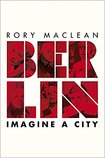In North Korea - a Journey Behind the Fiction — Page 2
Text by Rory MacLean, photographs by Nick Danziger
Nowhere is the power of this narrative more blatant than at the Museum of the Victorious Fatherland War, as the Korean War is known in the country.
"When I was eighteen years old I shot and killed 367 enemy soldiers," said beribboned General Pak Chan-su, 79, when we met at the museum. "We in the People’s Army knew that Hill 1211 had to be held. We knew that the U.S. aggressors would destroy us if they took the height. I was a machine gunner. My tactic was to let the U.S.-hired Turkish forces climb to within 50 meters of my dugout. Then I started shooting, and did not stop." In slow, conscious hand movements Pak Chan-su indicated the angle of advance and attack, flicking off the falling men with his now-manicured fingers. ‘It was the happiest day of my life. I became a Hero of the Republic.’

In Allied records the defence of Hill 1211, or the Mundung-ni Valley, was a small, secondary action following the much larger Battle of Heartbreak Ridge. Yet in North Korean history the two battles have been conflated. The Communists’ defeat at Heartbreak Ridge is ignored while Hill 1211 is celebrated as a great victory. In powerful, bloody and wretched dioramas such as the "Defeat of US Room" a manikin of a crumpled and despairing American soldier is surrounded by broken bodies, shattered Coke bottles and a tattered Stars and Stripes.
Like all North Koreans, Pak Chan-su has been taught that his country is still at war. He believes in Korean unification. "But this can’t be achieved until America leaves the southern lands. We know they don’t want peace. So the only solution is to smash away the U.S. aggressors."
Power and Strategy in the Hermit Kingdom
In the West, Kim Jong-un, North Korea's ruthless leader, is often portrayed as a maniac. But in truth he is firmly in control, and working on a plan for his and his regime's survival. Consider recent Asian history. In the 1950s China was treated as a pariah state, isolated and threatened by the United States. But after it acquired nuclear weapons the country grew to become an accepted member of the international community. Today North Korea wants to replicate that Chinese scenario, on the basis of its own nuclear deterrent. Hence for Kim Jong-un, an arsenal of nuclear weapons represents his only chance of survival, unless he wants to meet the same fate as Muammar Gaddafi and Saddam Hussein, both of whom relinquished their weapons programs only to be overthrown.
Another war on the Korean peninsula would evolve as a great human tragedy, unfolding with unprecedented violence, costing as many as a million lives and ripping apart northeast Asia. To avert disaster, the U.S. seems to have no choice but to acknowledge the reality that North Korea is now a nuclear power, and to admit that Pyongyang’s nuclear coercion strategy has succeeded. Washington must make a genuine effort to address North Korea’s security concerns. Only then can negotiations begin to convince Kim Jong-un that his country should cease its human rights violations, abandon its nuclear weapons, and open itself to the world.

Of course U.S. passport holders are now banned from traveling to North Korea, following the death of Otto Warmbier, the 22-year-old college student from Ohio who was imprisoned for nearly a year and a half and returned to his parents in a coma from which he never recovered. At least 16 other US citizens have been detained in North Korea in the past ten years, the authorities having held individuals who traveled independently as well as those who were part of organized tours. Being a member of a group tour or using a tour guide did not protect them from detention or arrest. So now is not the time to visit North Korea, for a clash between Kim and an unpredictable White House could take the current standoff in an even more worrying direction.
Hence the importance of building bridges of understanding between individuals, and so trying to appreciate why people grow blind to their human experience, clouding it with dogma, worshipping a distant tyrant. We need to recognize the motivation of the North Koreans, to grasp why they act like they do. After all, it's only by experiencing the world from another person's point of view that we can begin to understand that person or society.
Of course it was not possible to discuss any of these matters during our trip to the country. Nick Danziger and I were kept under constant surveillance and no North Korean dared to hazard a guess about the future for officially, the present is all-but-perfect. Equally we were not naïve enough to draw their attention to the famine that killed hundreds of thousands of North Koreans between 1993 and 2000, according to the United Nations. Nor did we mention the 2014 UN report on the “systematic and unparalleled” abuse of human rights or the compelling evidence of on-going torture, execution, and arbitrary imprisonment in the country’s prison camps. Even though known to be true, such questions would have been met with denial as well as endangered our interviewees, all of whom had been pre-screened by the Orwellian-named Committee for Relations with Foreign Countries.
As much as was possible on our trip, we simply let the men and women who we met speak for themselves and tried to let the significant—and even perhaps more tellingly, the insignificant moments of their lives—reveal something of this singular country.
Rory and Nick's new book In North Korea: Lives and Lies in the State of Truth is available on Kindle at Amazon (as well as all other e-book distributors).
Rory MacLean is the author of more than a dozen books including UK top ten bestsellers Stalin’s Nose and Under the Dragon as well as Berlin: Imagine a City, a book of the year and “the most extraordinary work of history I’ve ever read” according to the Washington Post. He has won awards from the Canada Council and the Arts Council of England. He has written about the missing civilians of the Yugoslav Wars for the ICRC and on divided Cyprus for the UN’s Committee on Missing Persons. A Fellow of the Royal Society of Literature, Rory divides his time between Dorset, London, and Berlin.
Photos © Nick Danziger, who is a world-renowned photojournalist and filmmaker. He has received an Honorary Fellowship from the Royal Photographic Society and the World Press Photo 1st prize in the single portrait category. He has also received the Royal Geographical Society's Ness Award for recognition of raising public understanding of contemporary social, political and environmental issues. His documentary film War, Lives & Videotape won the Prix Italia in 1991 for the best television documentary. Nick's interest in marginalized and disadvantaged peoples has been documented in many of his best-selling books, among them, Danziger's Travels, Danziger's Adventures, Danziger's Britain and The British. His photographs have appeared in newspapers and magazines worldwide, toured museums and galleries internationally, and are part of several prestigious museum collections.
Related Features:
One Step Across - Carolyn B. Heller
Kicking Back (and Kicking) Like a Monk in Korea - Michael Buckley
Dueling Smiles in Muzzled Myanmar - Bruce Northam
See other Asia travel stories from the archives
Copyright (C) Perceptive Travel 2017. All rights reserved.
- A Divided History on the Walls of Belfast by Tom Coote
- The Most Porous Border by Tim Brookes
- My Very Bad Italian Day by David Lee Drotar
- Travel Book Reviews by William Caverlee
Books from the Author:

Buy In North Korea: Lives and Lies in the State of Truth at your local bookstore, or get it online here:
Amazon

Buy Berlin: Imagine a City at your local bookstore, or get it online here:
Amazon

Buy Under the Dragon: A Journey through Burma at your local bookstore, or get it online here:
Amazon

